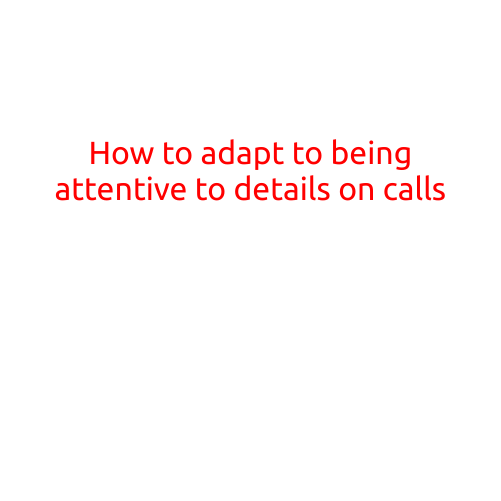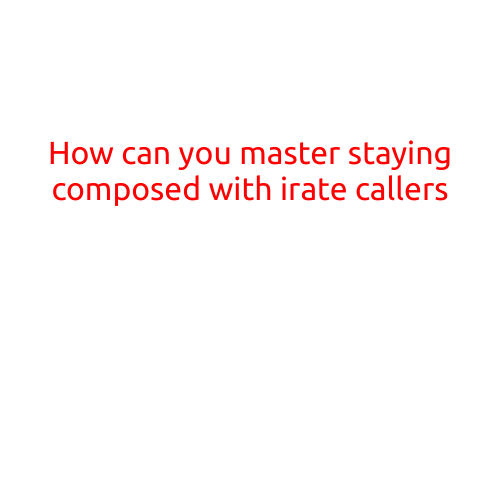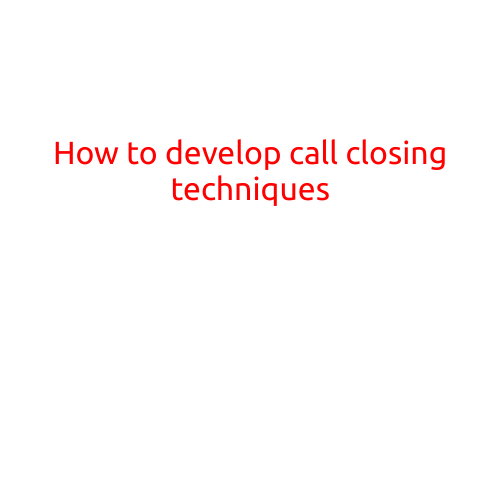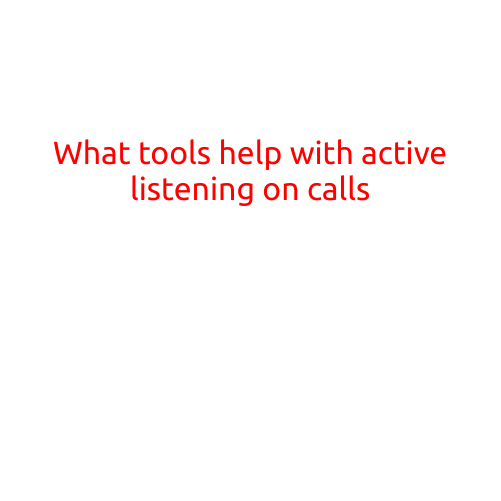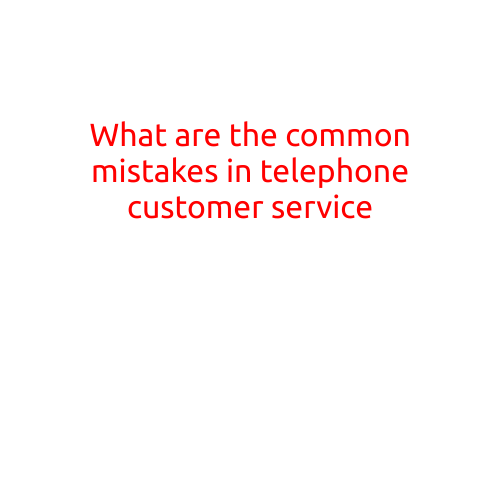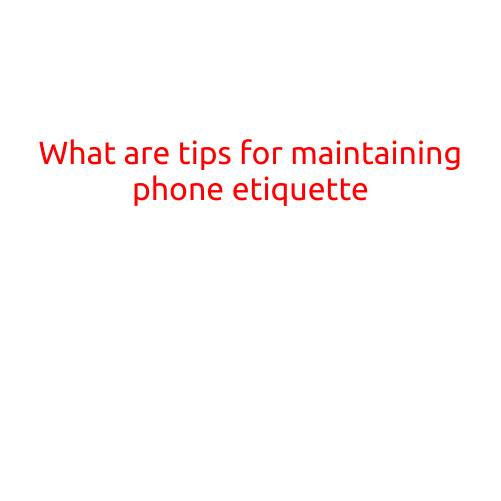
What are Tips for Maintaining Phone Etiquette?
In today’s digital age, phones have become an integral part of our daily lives. Whether we’re using them for personal or professional purposes, phone etiquette has become essential to avoid awkward situations and maintain a good reputation. In this article, we’ll explore the tips for maintaining phone etiquette and making a good impression.
Tip 1: Answer Calls Promptly
Answering calls promptly is crucial in maintaining phone etiquette. Make sure to answer calls within two to three rings, unless you’re in a meeting or engaged in an important task. Ignoring calls or letting them go to voicemail can give the impression that you’re not interested in speaking with the caller.
Tip 2: Use a Professional Greeting
When answering calls, use a professional greeting that includes your name and a brief introduction. For example, “Hello, this is [Your Name] from [Your Company].” Avoid using generic greetings like “Hello?” or “Hi?” which can come across as unprofessional.
Tip 3: Speak Clearly and Loudly
When speaking on the phone, make sure to speak clearly and loudly enough for the caller to hear you. Avoid mumbling or talking in a whisper, as this can lead to misunderstandings. Also, avoidbackground noise or distractions that can make it difficult for the caller to focus on the conversation.
Tip 4: Be Respectful and Patient
Phone conversations can be challenging, especially when dealing with language barriers or technical issues. It’s essential to be respectful and patient when communicating with callers, especially in situations where you may need to repeat information or clarify misunderstandings.
Tip 5: Use Appropriate Language
Use appropriate language when speaking on the phone, especially if you’re dealing with professional or formal situations. Avoid using slang, jargon, or offensive language that can be offensive or inappropriate.
Tip 6: Avoid Multitasking
Multitasking while on a phone call can lead to distractions and poor communication. Make sure to avoid doing other tasks simultaneously, such as typing on your computer or watching TV. Instead, dedicate your full attention to the conversation.
Tip 7: Be Prepared
Before making or receiving calls, make sure you’re prepared with the necessary information and resources. This can include having relevant documents or notes ready, or having your schedule and contacts easily accessible.
Tip 8: End Calls Professionally
When ending calls, make sure to say goodbye and thank the caller for their time. Avoid abrupt hang-ups or abrupt disconnects, as this can come across as impolite or unprofessional.
Tip 9: Use Cellphones in Public
When using cellphones in public, make sure to keep the volume low and avoid using the speakerphone feature in crowded areas. Also, avoid using your cellphone in situations where it may be distracting, such as during meetings or in quiet spaces.
Tip 10: Follow Up
After a phone call, make sure to follow up with any necessary actions or tasks. This can include sending emails or messages, making notes, or delegating tasks to others. Following up promptly can help ensure that communication is effective and that tasks are completed efficiently.
In conclusion, maintaining good phone etiquette is essential in today’s digital age. By following these tips, you can ensure that your phone calls are effective, respectful, and professional. Remember to answer calls promptly, use a professional greeting, speak clearly and loudly, and be respectful and patient. By doing so, you can make a good impression and build strong relationships with others through your phone calls.
